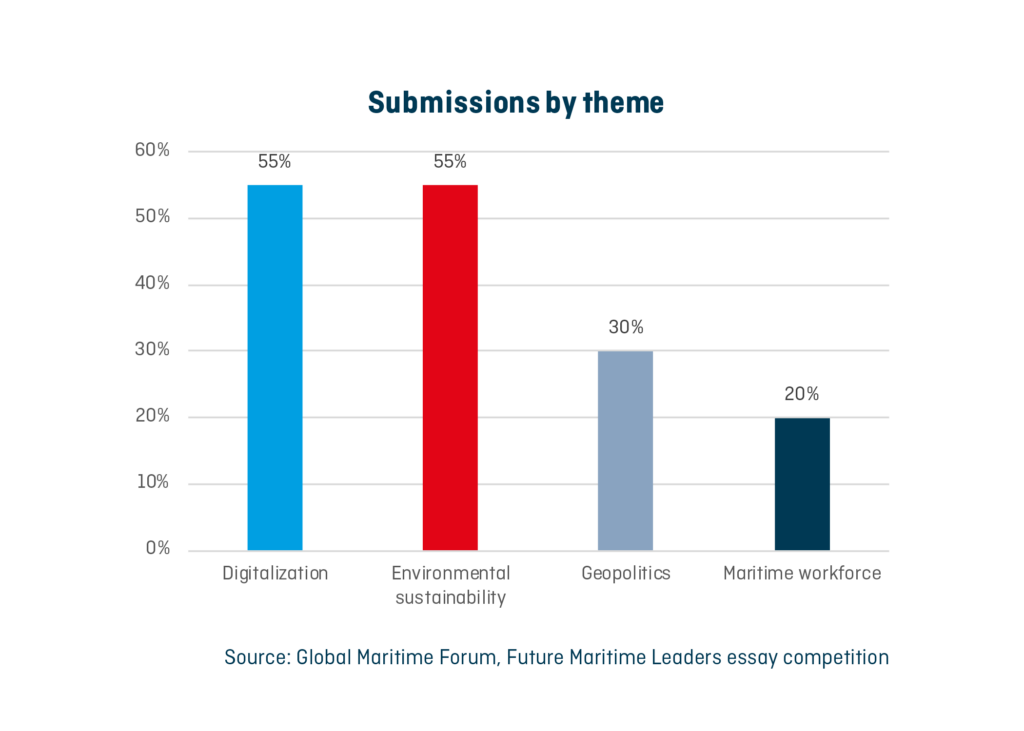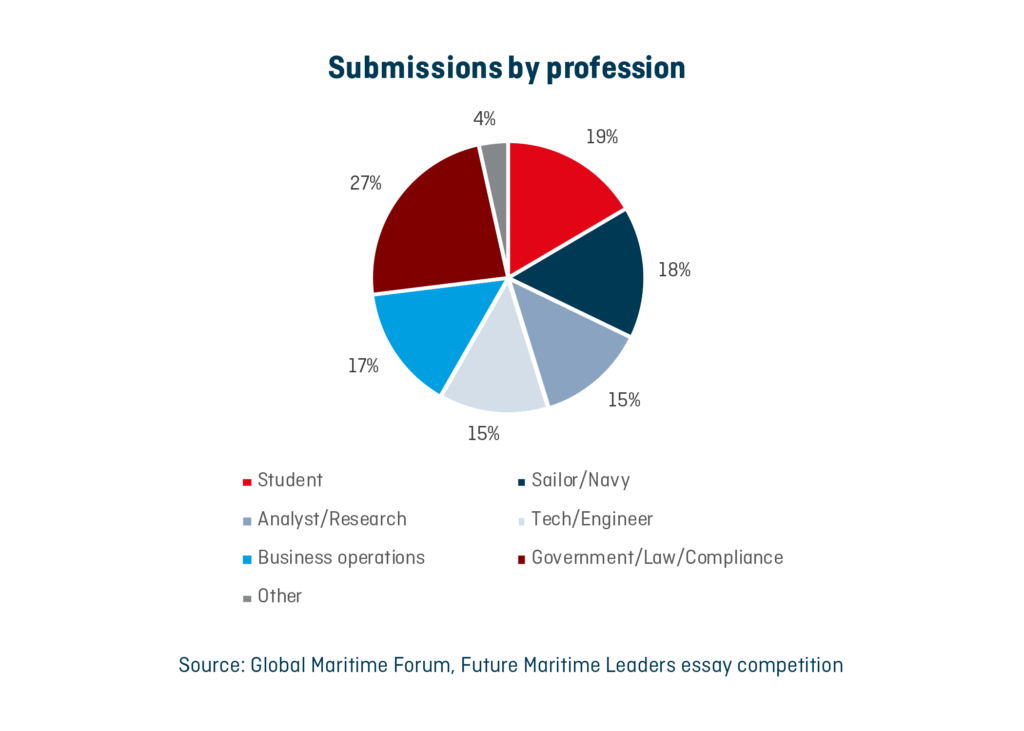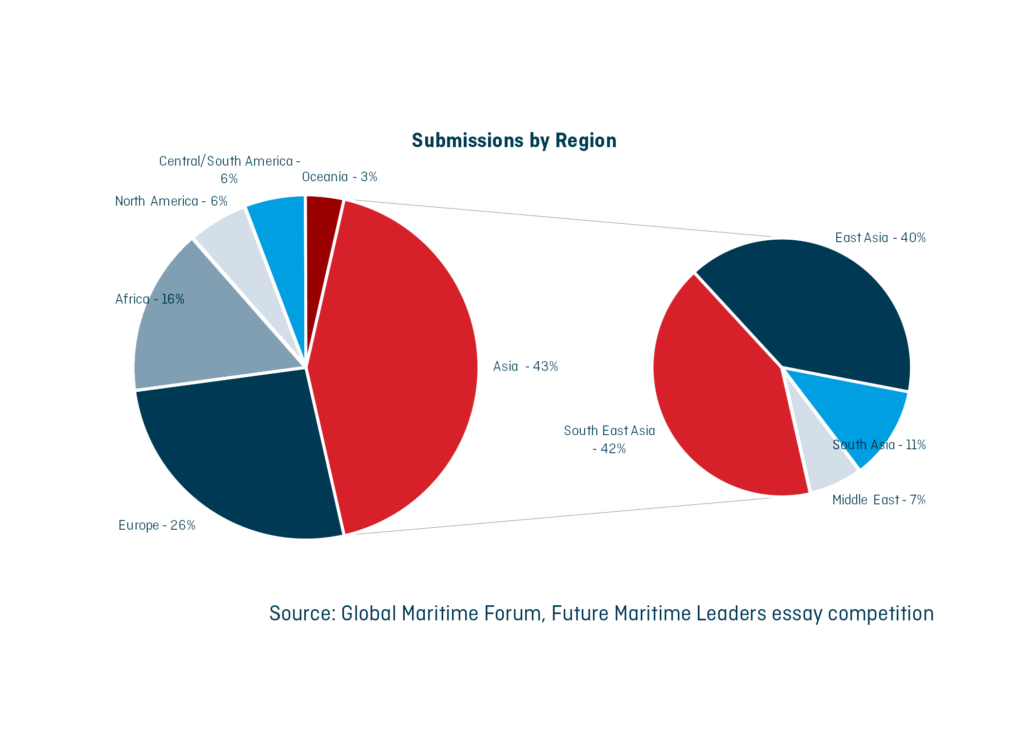Young talents from Nigeria, China and Denmark who wrote about digital seafarers, an emissions trading scheme and circular economy, named winners of the Future Maritime Leaders essay competition. Namely, 140 global essay contributions focused on issues on top of the agenda for the next wave of maritime leaders.
Digitalization, environmental sustainability, geopolitics, the maritime workforce and their interlinkage are among the top issues, capturing the attention among the next generation of maritime leaders.
These were the themes, on which 140 essays from 46 different countries focused on, in connection with the Future Maritime Leaders essay competition, organized by the Global Maritime Forum. The competition aspires to give students and young professionals aged 18-30 a voice in the debate about how the maritime industry can sustainably address maritime challenges and opportunities.
The three winners of the Future Maritime Leaders essay competition show the large diversity amongst the competition participants and essay topics.
Specifically, competition winner, Iorliam Simon Tersoo, a 30-year-old Maritime Safety Officer from Nigeria, addresses the need for preparing the next generation of seafarers to a more digitalized future, because of automation of the maritime industry. He believes that the future will need digital seafarers. This means seafarers who will sit ashore and take ships to sea and back safely, observing the relevant regulations, while also conducting the conventional functions of seafarers automatically and in a safe way.
Moreover, an emissions trading scheme supported by spatial-temporal emission profiles is the focus of Yiqi Zhang’s winning essay. Ahead of the forthcoming environmental and climate related regulations, the 30-year-old Chinese PhD student mentions how a trading scheme will offer flexibility for regulation compliance during a policy transition period. It will also be able to provide financial incentives for the industry to upgrade to a greener business.
Additionally, circular economy is a keyword for Line Fryd Hofmansen, a 26-year-old Management Consultant from Denmark. In her winning essay, she aspires for maritime industry to have a long-term impact on the broader sustainability agenda. By finding new ways to use its role and impact in the ecosystem of trade, the maritime industry can lead the circular economy in global supply chains.
“It is heartening to see the wide variety of issues and creativity contained in the many essays. It makes me believe that the future is bright for the long-term sustainability of the global seaborne trade”
states Christine Loh, Chief Development Strategist of the Institute for the Environment, Hong Kong University of Science and Technology, and Chair of the Future Maritime Leaders essay competition selection committee.
In the same wavelength, Amy Jadesimi, Managing Director of LADOL, believes that:
“The next generation sees decarbonization and environmental protection as a serious responsibility of the maritime industry, which on the other hand provides unique opportunities for development and innovation.”
As for Stephen Cotton, General Secretary, International Transport Workers’ Federation, he commented on the essays, saying that several essays pointed out how the maritime industry loses out on potential talent because of unattractive career opportunities.
“They propose more investment in training of the current workforce and a larger acceptance of nationality and gender differences to change this perception.”































































